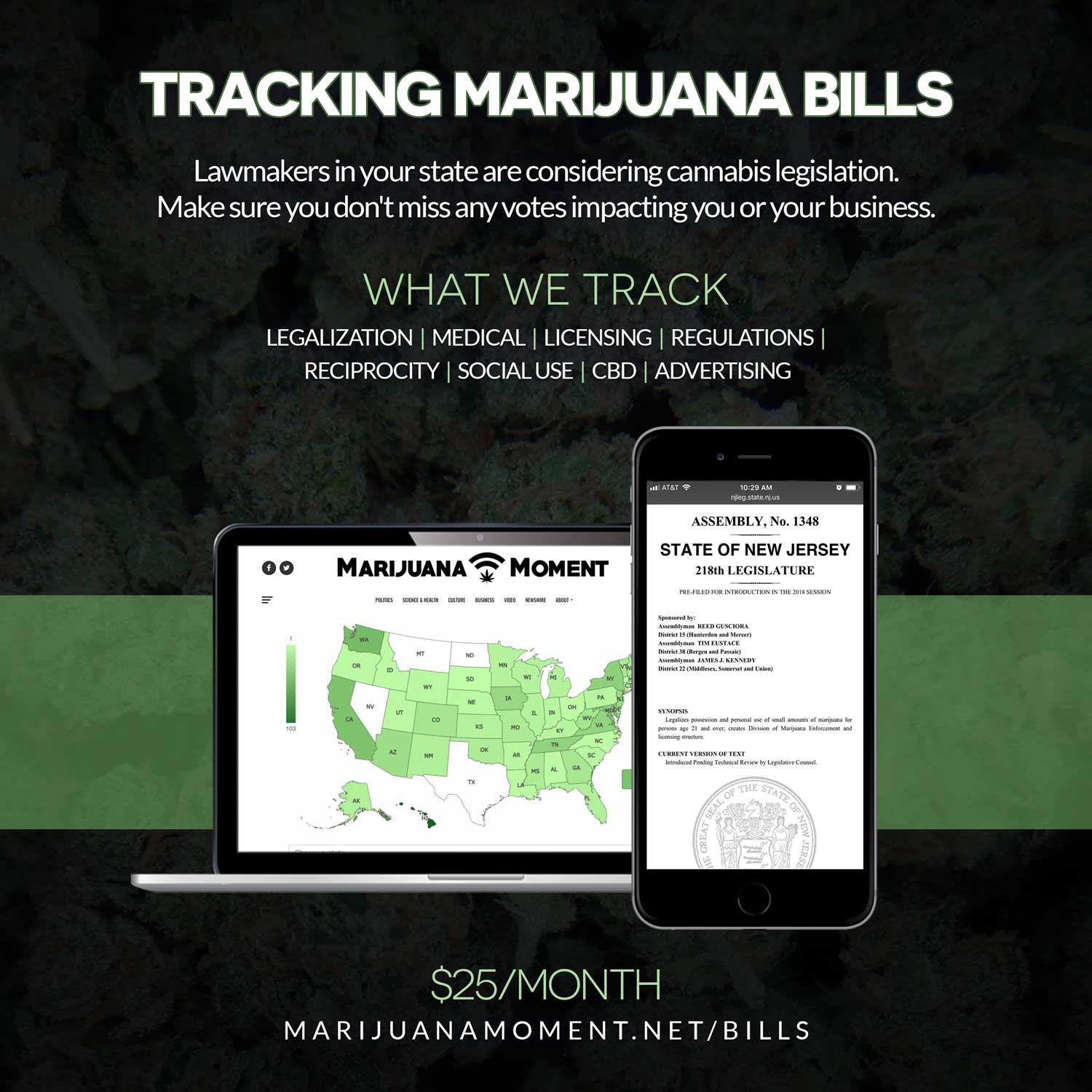A powerful GOP-controlled House committee has blocked an amendment to a spending bill that would have freed up Washington, D.C. to legalize marijuana sales in the nation’s capital, as well as a separate proposal to prevent drug testing federal job applicants for cannabis.
The House Rules Committee declined to make in order for floor votes the two amendments to appropriations legislation covering Financial Services and General Government (FSGG) on Monday—the latest in a series of marijuana reform measures that the panel has prevented the full House from considering.
Reps. Eleanor Holmes Norton (D-DC), Earl Blumenauer (D-OR) and Barbara Lee (D-CA) filed the D.C. amendment. It would have removed a longstanding rider that prevents the District of Columbia from using its local tax dollars to implement a commercial marijuana market, despite voters in the District approving legalization at the ballot in 2014.
To the disappointment of advocates, the rider was kept in both the Republican majority House and Democratic majority Senate base bills that moved through each chamber’s respective Appropriations Committee over the summer. President Joe Biden’s Fiscal Year 2024 budget request that he released in March also maintained the D.C. rider for the third year in a row.
The Rules Committee also blocked an amendment from Rep. Robert Garcia (D-CA), who has consistently sought to use the appropriations process this year to secure marijuana-related employment protections for federal workers. Like his other spending bill proposals, the FSGG amendment would have prevented the use of federal funds to drug test federal job applicants under the covered agencies for marijuana.
He also recently filed a version of the reform for appropriations legislation covering Commerce, Justice, Science, and Related Agencies (CJS) and Labor, Health and Human Services, and Education (LaborH).
In an interview with Marijuana Moment last week, Garcia said he believes federal legalization is long overdue, and in the meantime he’s using his past experience reforming city-level workplace cannabis policy as mayor of Long Beach to inform his congressional efforts.
—Marijuana Moment is tracking more than 1,000 cannabis, psychedelics and drug policy bills in state legislatures and Congress this year. Patreon supporters pledging at least $25/month get access to our interactive maps, charts and hearing calendar so they don’t miss any developments.Learn more about our marijuana bill tracker and become a supporter on Patreon to get access.—
Garcia and Rep. Earl Blumenauer (D-OR), a founding co-chair of the Congressional Cannabis Caucus who recently announced he will not be seeking reelection next year, separately filed a CJS amendment to protect jurisdictions that legalize psilocybin for therapeutic use.
While the measure’s prospects in the GOP-controlled Rules Committee are uncertain, the panel has allowed separate, GOP-led psychedelics measures to receive floor consideration as part of another appropriations bill that ultimately passed the full House.
One of those House-passed amendments would allow VA doctors to issue medical cannabis recommendations to veterans, and the other would encourage research into the therapeutic potential of psychedelics like psilocybin and MDMA.
The Senate approved a bill last week that also includes a similar provision to allow VA to issue medical marijuana recommendations to veterans living in legal states—setting the stage for conference with the House.
A pair of psychedelics research measures, as well as an amendment on creating federal labeling requirements related to marijuana interactions with prescription drugs, were also approved by the House in September as part of a Department of Defense (DOD) spending bill.
A report attached to the spending legislation by the House Appropriations Committee separately includes a section noting that “VA has clarified that nothing in VA statutes or regulations specifically prohibits a veteran whose income is derived from state-legalized cannabis activities from obtaining a certificate of eligibility for VA home loan benefits.”
In another pair of reports for spending bills on CJS and LaborH, the Appropriations Committee is pushing for researchers to be able to study the cannabis products that consumers purchase in legal states. The CJS report also urges the Justice Department to study the effectiveness of state regulatory frameworks for marijuana.
Over in the Senate, lawmakers passed defense legislation in July that contains provisions to bar intelligence agencies like the CIA and NSA from denying security clearances to applicants solely due to their past marijuana use. But other cannabis proposals, such as one from Sen. Brian Schatz (D-HI) to allowed medical marijuana use by veterans, did not advance as part of the National Defense Authorization Act (NDAA).
More than a dozen marijuana and psychedelics amendments to the House version of the NDAA were blocked by the Rules Committee in July. That includes a measure introduced by Garcia that would have prevented security clearance denials for federal workers over prior cannabis use.
However, in September the House Oversight and Accountability Committee passed a standalone bipartisan bill that would prevent the denial of federal employment or security clearances based on a candidate’s past marijuana use.
Photo courtesy of Brian Shamblen.
Read More Feedzy

